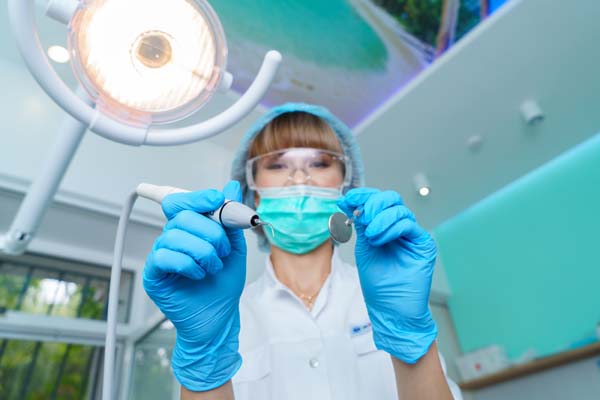Laser Dentists Offer No Shot, No Drill Fillings

A laser dentist is a great resource to utilize when looking for an alternative way to have dental procedures performed. Laser dentists offer procedures that are less invasive, less painful and less grueling for the mouth. They do this by using laser light beams to perform necessary treatments on the oral cavity. Ultimately, dental laser technology allows for quicker recovery time and far less discomfort.
One popular procedure that laser dentists perform regularly is a no shot, no drill dental filling. Dental fillings are needed when an individual has a minor to moderate cavity. Below is an overview of what happens during a laser dental filling procedure. This information can be helpful to individuals looking into alternative ways to treat their cavities. Ready to find out more?
No shot, no drill fillings from a laser dentist
What is a laser dentist?
A laser dentist is a general dentist who specializes in laser dentistry, which is the practice of using laser lights to perform dental procedures. The use of lasers in dentistry has been around since the late '80s. However, a lot of dentists are just now beginning to offer laser services. Most laser dentists specialize in general dentistry but require further education in laser light procedures and practices.
No shot, no drill dental fillings
No shot, no drill dental fillings are performed by laser dentists regularly. The laser light destroys the bacteria in the cavity of the tooth without causing an immense amount of pain. Instead of having to use a drill, a laser dentist applies the light of the laser to the cavity, which quickly and efficiently destroys any living bacteria.
After the laser has destroyed the bacteria, the cavity in the tooth is thoroughly cleaned with a dental instrument. To finish the procedure, a filling material of the patient's choice will be applied to the empty space left by the cavity. In most scenarios, the patient may experience soreness or discomfort immediately after the procedure. However, with laser dentistry, pain—if present—is minimal.
Other things to know
While laser dentists can perform fillings with laser lights, it is good to know that this method only works on molar teeth. The molars are much bigger than the rest of the teeth, providing better margins. Cavities on the front teeth or in between them are often too small to treat with laser dentistry.
Laser dentists can also perform teeth whitening, gum contouring, biopsies and oral cancer treatments. However, generally speaking, no shot, no drill fillings are the most common procedure done with laser technology.
Consult with a laser dentist
Working with a laser dentist to get cavities treated can be quite helpful when looking to avoid discomfort. To find out more about how the procedure works, it is best to consult with a general dentist who specializes in laser dentistry. Any questions or concerns can be appropriately addressed, and an appointment can be scheduled. Reach out today to find out more or to get started!
Request an appointment here: https://edison.ismiledentalcarenj.com or call Premier Dental of Edison at (732) 272-0746 for an appointment in our Edison office.
Check out what others are saying about our dental services on Yelp: Laser Dentistry in Edison, NJ.
Related Posts
Many people are choosing laser dentistry options to correct gum conditions. Crooked, misshapen, and discolored teeth can ruin a smile. But gum problems can also make you feel self-conscious and want to avoid opening your mouth. Some gum issues can affect your oral health and overall wellness too. Instead of going to the periodontist's office…
Considering laser dentistry? As new dental technology becomes available, more people are beginning to consider the practices, especially when it comes to procedures that have been known to cause discomfort. Gum reshaping is a procedure that is known to be pretty uncomfortable because the gums are literally removed in certain areas. However, with the help…
A dental veneer is a popular cosmetic dentistry solution designed to enhance the appearance of teeth by improving their shape, color, and alignment. Proper care and maintenance are essential to maintain a dental veneer's longevity and aesthetic appeal. Following a few practical steps, patients can ensure their veneers remain durable and beautiful for years.Good oral…
When it comes to replacing missing teeth, implant supported dentures are an effective and long-lasting choice. An implant is an artificial tooth root that is often inserted in the jawbone. It is used to hold an artificial tooth in place. All-on-4® dental implants are increasingly being recommended for people who need to replace multiple lost…
